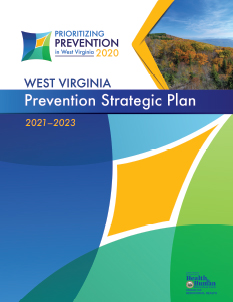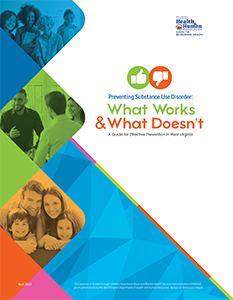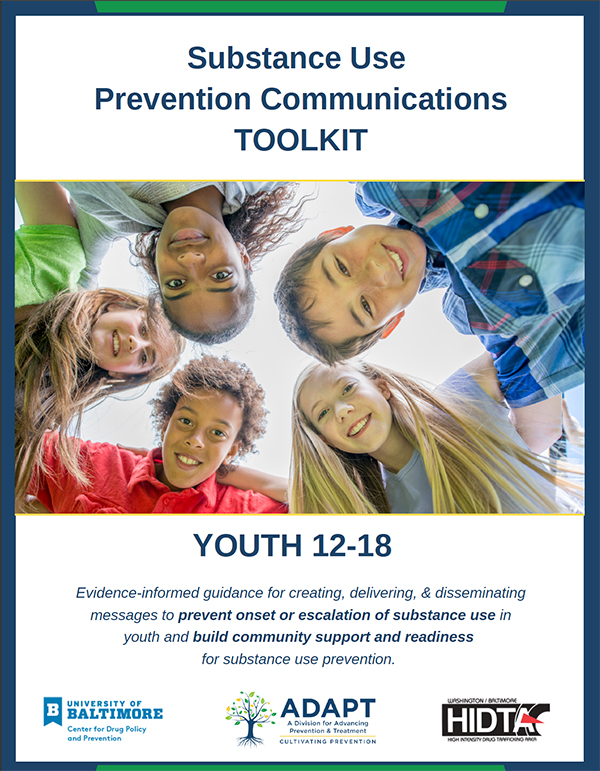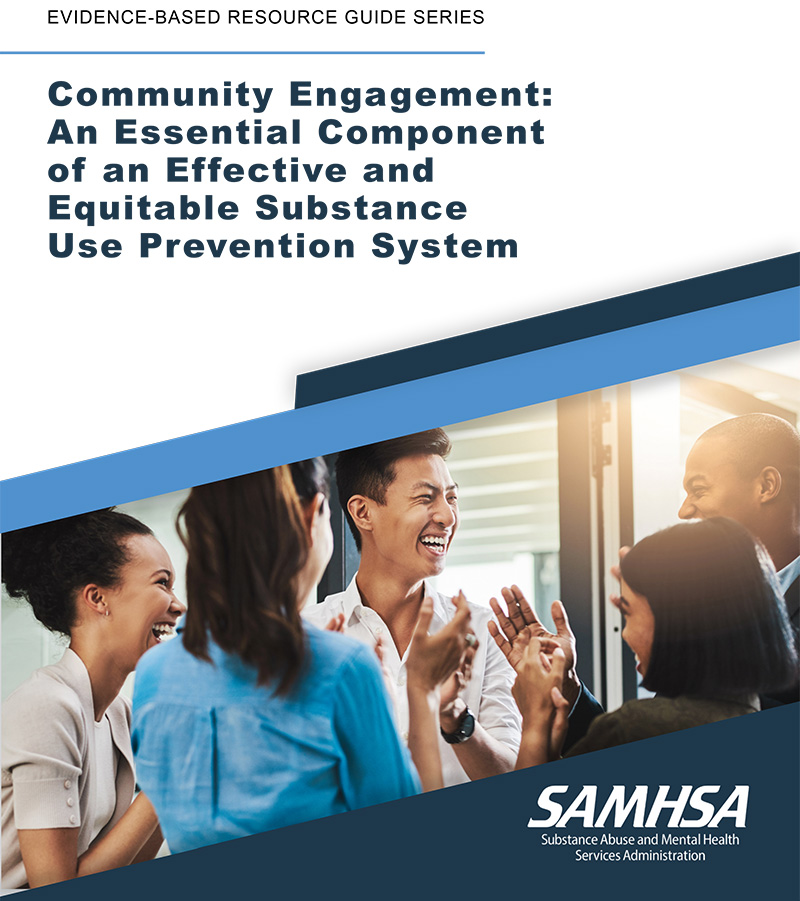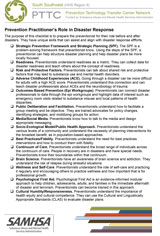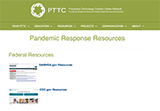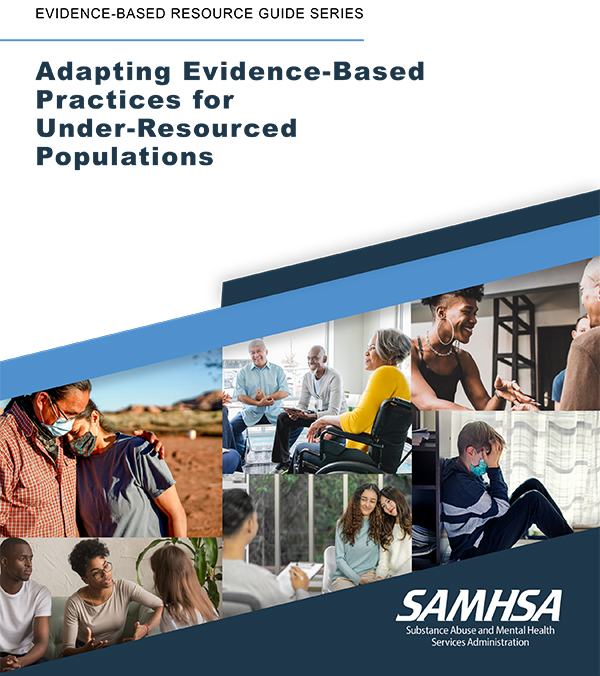Prevention Works
Similar to other chronic disorders, factors can affect whether we are more susceptible to the disease of addiction. Certain biological and environmental factors can increase our vulnerability.
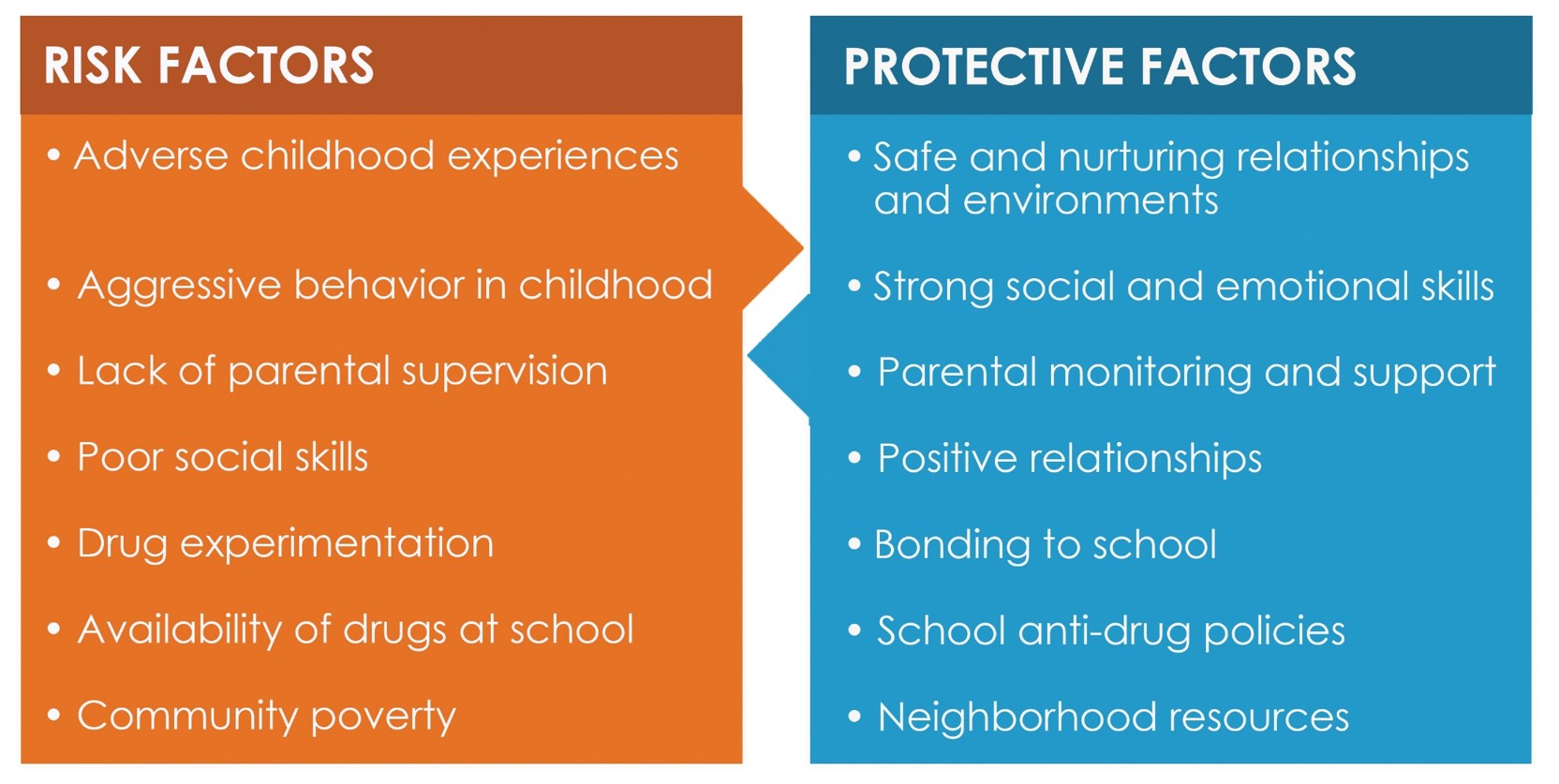
Prevention programs boost protective factors and eliminate or reduce risk factors. There is strong scientific evidence that supports the effectiveness of prevention programs.
Evidence-based prevention interventions can:
- prevent use or delay early use
- stop the progression from first use to misuse to substance use disorder (including addiction)
Prevention is cost-effective. Evidence-based prevention interventions can decrease costs related to substance-related crime, lost work productivity, and related health care costs.
West Virginia has developed a prevention infrastructure to implement and support prevention efforts in the state. Prevention Infrastructure in West Virginia includes:
- Six regional Prevention Lead Organizations (PLOs)
- County coalitions under the PLOs
- Partnerships for Success (PFS) Coordinators
- SOR Coalition Engagement Specialists
- SOR Adult Suicide Intervention Specialists
- Garrett Lee Smith (GLS) Youth Suicide Intervention Specialists and Prevent Suicide WV
Prevention Lead Organizations are located in six regions throughout the state. These leads have extensive training and experience related to prevention, and coordinate efforts among county coalitions and other specialists. They provide services such as information dissemination, education, alternatives, problem ID and referral, community-based processes, and environmental strategies. They are trained in the Strategic Prevention Framework and have experience using data to guide prevention decisions—from identifying which substance use problems to address in a community, to choosing the most appropriate ways to address these problems, to determining whether selected interventions and strategies are making progress in meeting prevention needs.
West Virginia has a great prevention infrastructure that can help with your prevention efforts. Whenever possible, consult with the regional Prevention Lead Organization to coordinate efforts.
WV Prevention Strategic Plan
Click to download
WV Prevention Guide August 2022
Click to download
Substance Use Prevention Communications TOOLKIT
Click to download
Community Engagement: An Essential Component of an Effective and Equitable Substance Use Prevention System
Click to download
Prevention Practitioner's Role in Disaster Response
Click to download
Prevention Resources During a Pandemic
View Resources
Adapting Evidence-based Practices for Under-resourced Populations
Click to Download
Adverse Childhood Experiences, Social Emotional Development, and Underage Alcohol and Drug Use: Connecting the Dots
Prevention Lead Organizations
Region 1:
Brooke, Hancock, Marshall, Ohio, Wetzel
Contact:
Dara Pond
Youth Services System, Inc.
(304) 233-2045
dpond@ysswv.com
Region 2:
Berkeley, Grant, Hampshire, Hardy, Jefferson, Mineral, Morgan, Pendleton
Contact:
Barbra Masih MS, LPC, NCC, AADC, CRC, PSII
Potomac Highlands Guild
304-257-1155
barbiem@potomachighlandsguild.com
Region 3:
Calhoun, Jackson, Pleasants, Ritchie, Roane, Tyler, Wirt, Wood
Contact:
Alison Browning
Westbrook Health Services
304-927-5200
abrowning@westbrookhealth.com
Region 4:
Barbour, Braxton, Doddridge, Gilmer, Harrison, Lewis, Marion, Monongalia, Preston, Randolph, Taylor, Tucker, Upshur
Contact:
Elizabeth Shahan, MSW, LGSW, PSII
West Virginia Prevention Solutions
304-423-5049
Elizabeth@wvpreventionsolutions.org
Region 5:
Boone, Cabell, Clay, Kanawha, Lincoln, Logan, Mason, Mingo, Putnam, Wayne
Contact:
Kim Shoemake, MS
Prestera Center
304-412-7036
Kimberly.Shoemake@prestera.org
Region 6:
Fayette, Greenbrier, McDowell, Mercer, Monroe, Nicholas, Pocahontas, Raleigh, Summers, Webster, Wyoming
Contact:
Greg Puckett
Community Connections
304-913-4956
greg.puckett@strongcommunities.org

Prevention Specialist (PS)
IC&RC Defines Prevention as: A proactive process which empowers individuals and systems to meet the challenges of life events and transitions, by creating and reinforcing healthy behavior and lifestyles and by reducing risk factors contributing to alcohol, tobacco and other drug usage and other related issues.
For more information about the requirements for Prevention Specialist Certification visit: https://www.wvcbapp.org/applications
WV Prevention Summit Presentations
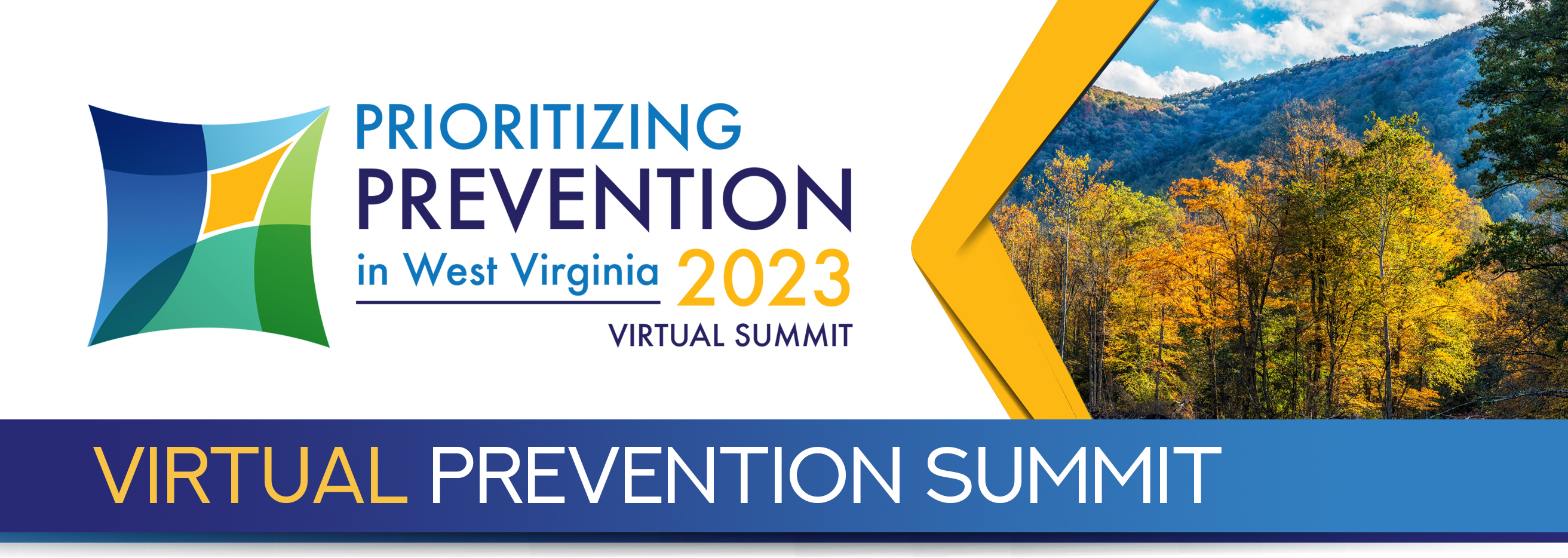
Evidence-Based Program Review
Do you have a prevention program that you'd like to submit for review to determine whether it's evidence-based? Submit your program info here.
Moving Prevention Strategies From In-person to Virtual
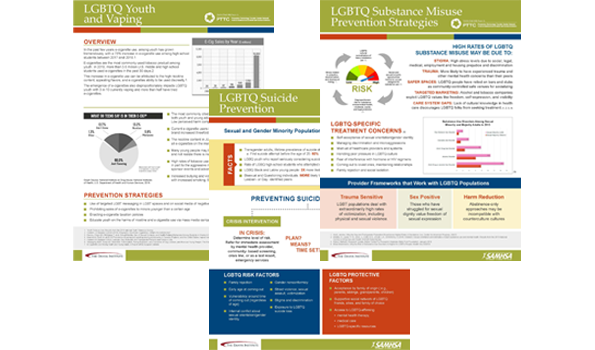
LGBTQ Fact Sheets for Prevention Professionals: Vaping, Suicide Prevention, Substance Misuse
